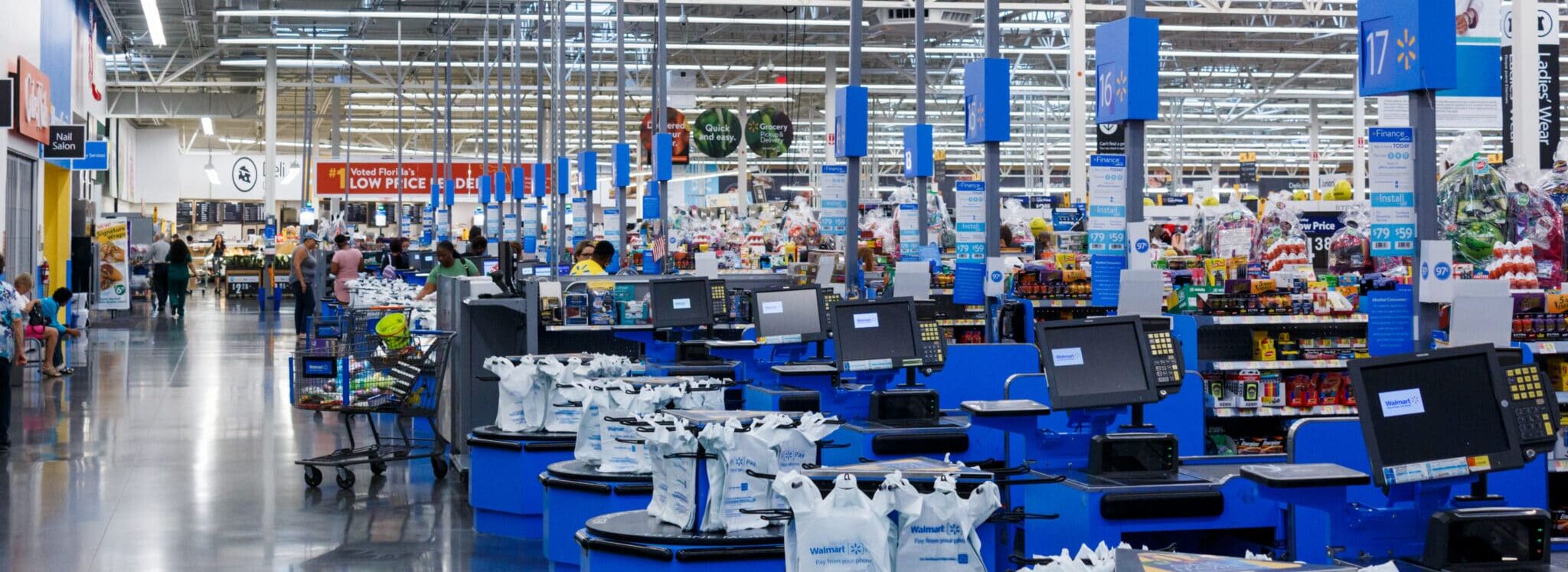
Third-party logistics has grown substantially over the past several decades. With its expansion, distinct varieties of providers emerged in the space.
Initially, generalized firms found the most success in arranging transportation for organizations of all shapes and sizes. Whether shipping produce or scrap metal, generalized providers could secure reliable capacity for an array of companies. Their business model did and continues to center around volume and cost competition.
However, as regulation, technology, and industry-specific requirements have grown more complex, specialized providers have emerged as a favorable choice for brands. This notion rings especially true with CPG shippers since the freight requires higher service levels than other non-time-sensitive freight to arrive at its destination on time.
Retail compliance initiatives like OTIF and MABD requirements continue to move the marketplace further in this direction. To solve supplier challenges, CPG shippers should look to specialized providers as a dependable solution to their supply chain issues.
By partnering with an industry-specific specialized logistics provider, brands can expect to find supply chain optimization strategies that make organizational performance and cost improvements. Before we explore the topic more in-depth, let’s look at the tenets of specialized logistics services.
What is Specialized Logistics?
Specialized logistics, in this instance, refers to a firm’s hyper-focus on a specific industry, niche, customer base, or organizational strategy.
This refinement allows a provider to align with an organization strategically. It also provides the 3PL staff with deep knowledge from firsthand experience in dealing with various industry-specific challenges.
For example, when a logistics provider specializes in CPG delivery, it can build distinct processes, strategies, and technology suites. Other 3PLs choose other specializations like produce or alcohol transportation. Any chosen specialization allows a 3PL to find organizational synergies between itself and its customers to serve its customers more thoroughly.
Why Specialized Logistics Providers?
Specialization is not unique to the logistics industry. This concept exists throughout many sectors. You would not see a general practitioner for a cardiovascular issue. The same applies to working with a third-party provider. If you have freight that requires high service levels, you should not look to a general provider and expect best outcomes.
No longer can one shop know the intricacies of every industry or possibly invest in all the necessary tools. The idea that you should call the same provider to ship produce and chemicals simply no longer flies. The complexities for ensuring the safety of each product are incredibly different, with that range only becoming vaster. Building relationships with the proper carriers takes time and is increasingly out of reach for those who use a generalist approach.
All successful organizations want to improve supply chain performance while cutting costs. Though those two goals seem to be at odds with one another, the spot where they merge is precisely the space where a strategic specialized 3PL partnership treads.
Because of their specialization, technology stems, and understanding of complex logistics functions, 3PL partners can fill any void left in your organization’s supply chain. A 3PL’s value comes from its ability to refine shipper-specific logistics processes and facilitate supply chain improvements.
Retail-Specialized Logistics a Differentiator
The benefit of specialization is highly apparent when dealing with retail-bound freight. This avenue of delivery has become increasingly challenging for CPG firms. Over the past several years, more retailers have instituted supplier delivery compliance programs to incentivize partners to ensure they are getting orders into the company’s supply chain on time.
Some of the most prominent big-box outlets like Walmart, Kroger, Costco, and Sam’s Club have store-supplier requirements that manufacturers must understand to complete successful delivery and eliminate chargebacks, which cut into profitability.
Recently, Walmart upped its expectations of shippers. Now suppliers must meet a 98% OTIF rate to stay in compliance. Those that cannot hit these requirements will face a fine of 3% of the cost of goods sold.
The retailer is often cited as a first mover in the space. Others will likely follow its lead and pass along greater supply chain expectations to CPG brands.
Despite the increase in stringency at the industry’s biggest retailer, shippers performed worse throughout the sector. According to a report from the Food Marketing Institute, the largest brands in North America reported an 8% decline in on-time in-full (OTIF) delivery performance at retail customers throughout 2020. This drop coincided with the rapid, widespread increase in demand that followed the onset of COVID-19.
However, even as the marketplace adjusted to the effects of the pandemic, these service levels never fully recovered. This is largely due to the way brands approach freight and work with third-party providers. Operating on a transactional basis with large generalist 3PLs will not provide shippers with the supply chain optimization strategies they need to meet on-time expectations consistently.
Failing to meet supplier requirements can erode retailer relationships and eventually undercut profitability. In a recent survey of retail buyers, 100% of respondents said that a supplier’s ability to deliver product on time impacted their willingness to work with them.
Work with Retail Logistics Specialists
A successful retail supply chain has emerged as a significant differentiator for CPG brands. Retail logistics experts can provide logistics network consultation, making suggestions for optimal warehousing placement, consolidation opportunities, and implementing pool distribution strategies integral to acing your retail relationships.
Zipline is comprised entirely of retail logistics experts who work with suppliers on a consultative level to exceed the expectations of retail customers. Brands that have a retail optimized supply chain can leverage their successes to increase exposure and facilitate growth.
Since over 95 percent of our orders end up on a retail shelf, we understand what it takes to ensure your product arrives at its destination as intended and on time.
We work with customers to manage their retail orders to create cost-reduction and performance-enhancing supply chain strategies.
Want to see what Zipline can do for you? Reach out to discuss our retail-driven brand transportation strategies today.